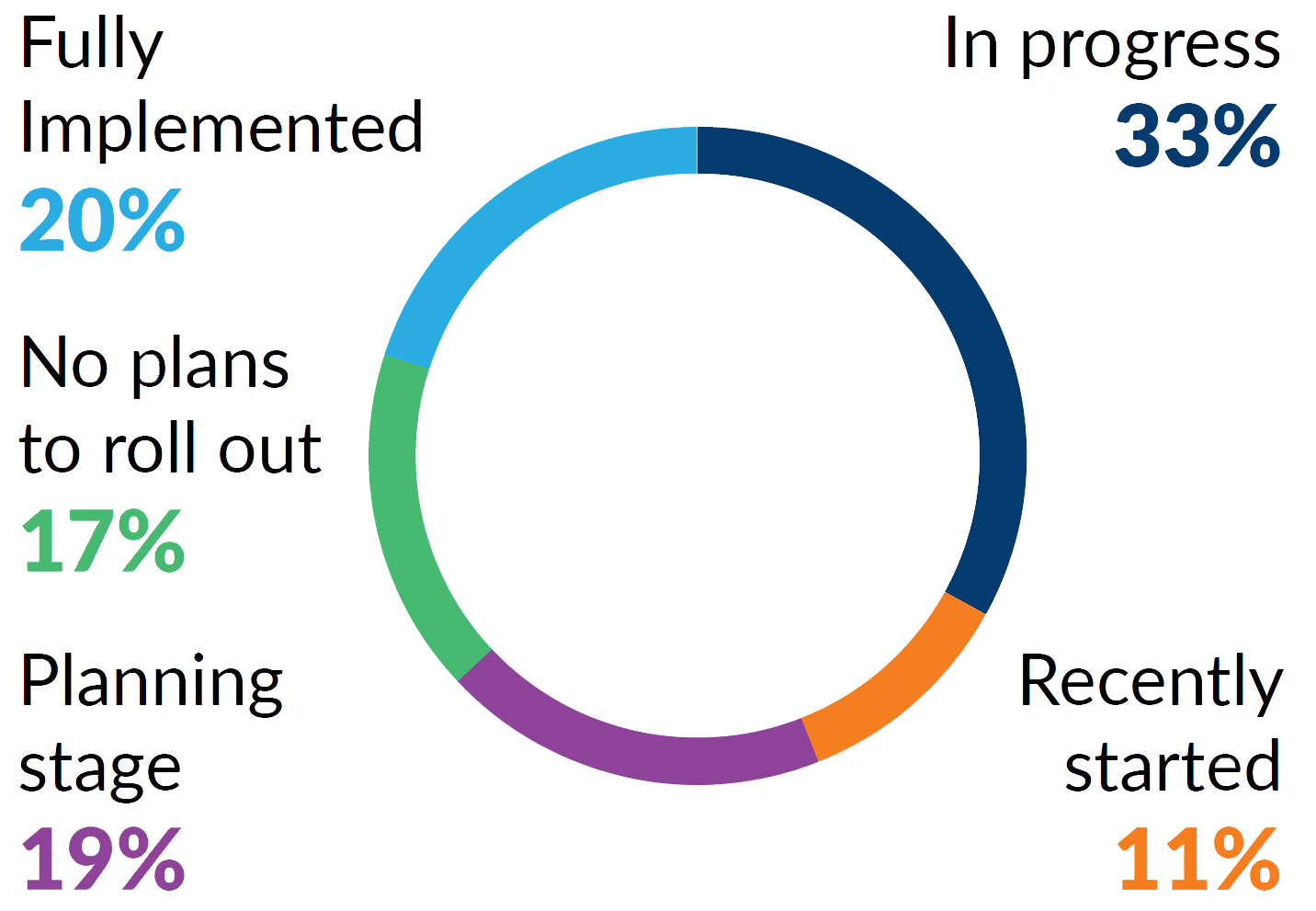Where is your organization in adopting platform engineering?
In mid-2023, CloudBees polled 221 practitioners within the software communities of DevOps, platform engineering, cloud native, and cybersecurity to take their pulse on the adoption and impact of platform engineering in their organizations. The data shows very significant levels of adoption (83%), with 20% fully adopted, 44% in progress or recently started, and 19% in the planning stages (Figure 1).
Platform engineering has made major inroads with a substantial percentage (83%) indicating they are in the adoption mode. Platform engineering is very much here to stay.

